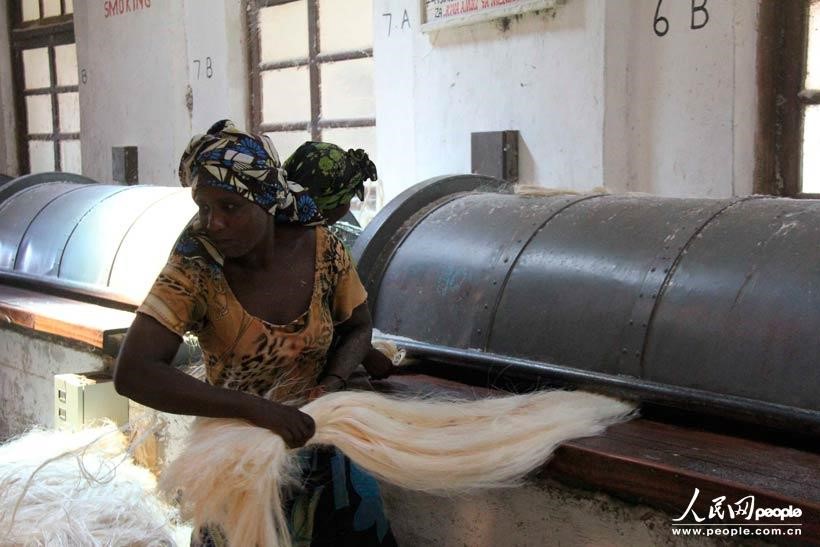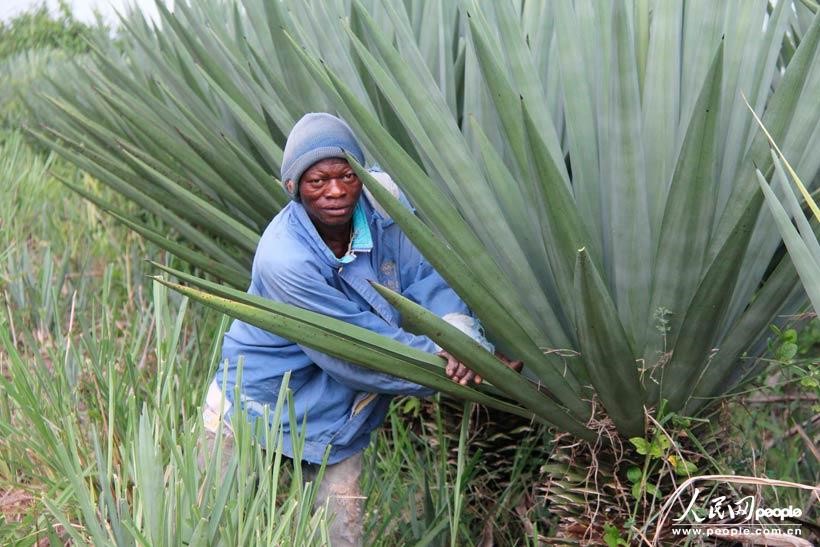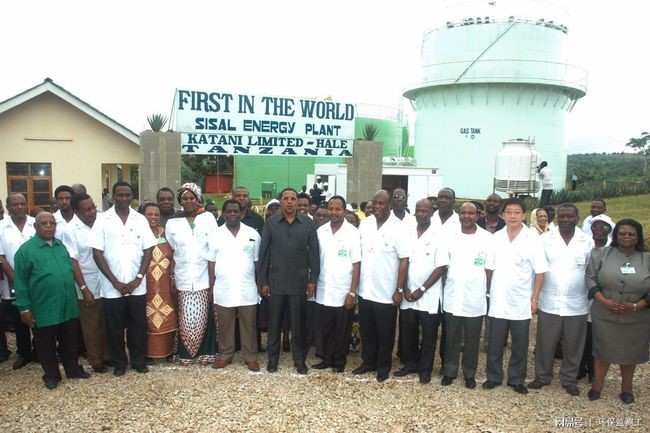China lends a hand to Tanzania's sisal industry
Around 300 kilometers west of the Tanzanian port city of Dar es Salaam lies a vast sisal farm built by the Tanzanian branch of the China-Africa Agriculture Investment Co., Ltd. There, Chinese agricultural technologies have turned wilderness into fertile farmland.

An employee of the Tanzanian branch of the China-Africa Agriculture Investment Co., Ltd. is polishing sisal fibers. (People's Daily Online/Yuan Jirong)
Orderly production of sisal fibers is witnessed in the sisal farm. In a newly built warehouse, bags of finished products are neatly piled up, waiting to be shipped overseas.
According to Wang Lusheng, chief engineer of the sisal farm, the place was covered by bushes where only weeds and venomous snakes were seen 18 years ago. Now, over 2,000 hectares of sisals have been planted, producing nearly 2,000 tonnes of fibers on an annual basis. It has grown into one of the major sources of sisal products in Tanzania, Wang said.
Sisal fibers, resilient and corrosion-resistant, have wide application scenarios. They can be used for making towropes, elevator cables and transport cables.
The tropical country of Tanzania is a world-renowned producer of sisals. It was once hailed as "Sisal Kingdom." However, sisal industry had experienced a major contraction in the country over the recent years.
"We have constantly gained experiences in sisal planting, and both the quality and quantity of sisals planted in our farm are the best in this region," said Guan Shanyuan, general manager of the sisal farm.
"To revitalize the sisal industry is an opportunity for Tanzania's economic development. Local sisal association once said that China's investment has boosted the local sisal industry. Under the Belt and Road Initiative, the enhanced cooperation between China and Africa on agricultural modernization is creating bright prospects for local development," the general manager said.
Such Chinese support is extending the sisal industrial chain in Tanzania. In a town in Tanga Region in northeast Tanzania, the Chengdu Institute of Biology under the Chinese Academy of Sciences has built a demonstration project of the United Nations Industrial Development Organization together with its German partners.

An employee of the Tanzanian branch of the China-Africa Agriculture Investment Co., Ltd. is cutting sisals on a sisal farm of the company. (People's Daily Online/Yuan Jirong)
"This is the world's first sisal waste liquid biogas power generation facility in the world. It generates a huge amount of electricity in an environment-friendly manner," said a staff member of the project.
The project, completed in 2008 with a designed installed capacity of 30MW, is able to supply the entire town. Over the past 14 years, sisal waste biogas power generation facilities have been built in many places across Tanzania, accounting for three percent to five percent of the country's total power generation.
Sisal is a raw material for making hard fibers, but only two percent to four percent of its constituents can be used for fiber making. Thanks to Chinese demonstration sisal projects, sisal waste has been fully exploited in Tanzania, which can both be transferred into combustible gas for power generation and generate organic solid and liquid fertilizer.
It is learned that the sisal waste generated by two sisal carders a day can be made into 350 cubic meters of liquid fertilizer and 40 tonnes of solid fertilizer, generate 1,500 cubic meters of biogas and make 2,250 kilowatt-hours of electricity.

Then Tanzanian President Jakaya Kikwete inaugurates a sisal waste liquid biogas power generation facility and poses for a picture with the facility's staff members. (File photo)
Biogas technology treats pollution and generates energy at the same time. It is applicative in developing countries. From Madagascar to Lesotho, and from Benin to Cote d'Ivoire, Chinese biogas technology is taking root across the African continent.
The former Tanzanian official Salum Shamte noted that Chinese biomass energy technology is making positive contribution to the energy development in Africa. He hopes that China and Africa can seek for bigger space of cooperation to help Africa achieve green development.
Photos
Related Stories
- Xi congratulates Julius Nyerere leadership school on inauguration
- Tanzania receives more donation of COVID-19 vaccines from China
- China, Tanzania willing to deepen ties: FMs
- Feature: China-Tanzania agricultural cooperation lifts farmers out of poverty
- Tanzania's "Coffee City" looks forward to expanding Chinese market
- Tanzania receives 500,000 Sinopharm vaccine doses from China
Copyright © 2022 People's Daily Online. All Rights Reserved.










